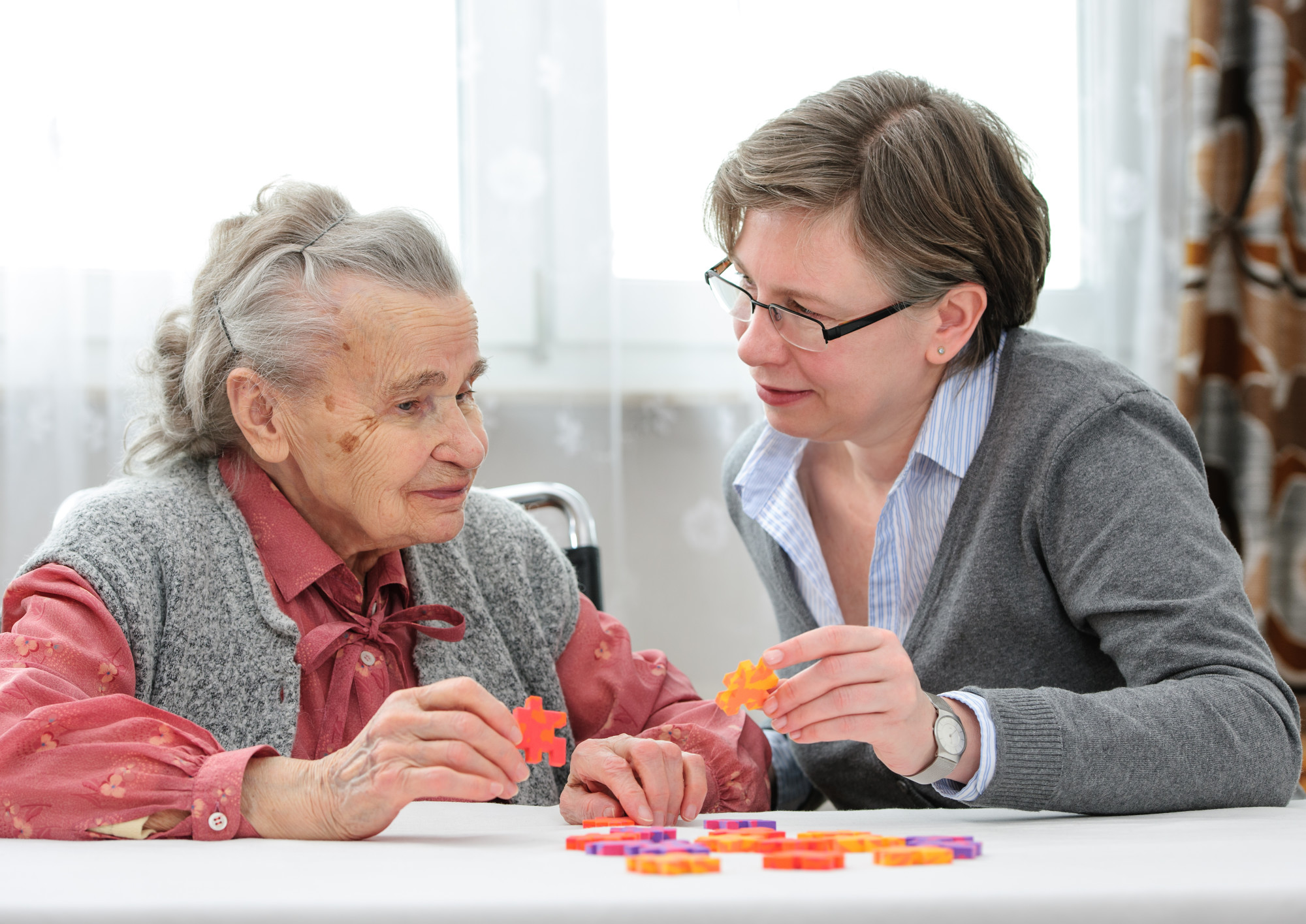
Elder care nurse playing jigsaw puzzle with senior woman in nursing home
Over 55 million people around the world suffer from dementia.
There are also many forms of dementia, and the disease is incurable. But the good news is that scientists, psychiatrists, and neuropharmacologists are hard at work on promising treatments.
If you are caring for someone with dementia, then this article is for you as there are new treatments that can improve the quality of life for sufferers and their loved ones.
Read on to find out what are the promising treatments for dementia today!
Let’s dig in!
1. Cognitive Stimulation Therapy
Cognitive stimulation therapy is a promising treatment for dementia that involves providing stimulating activities to promote cognitive function.
This therapy can help improve memory, attention, and language skills. Additionally, cognitive stimulation therapy can also reduce depression and other mental disorders. This treatment is the most effective way to meet the specific needs of the individual.
2. Pharmacological Interventions
Despite the many available treatments for dementia, there is still no cure. However, one promising new treatment is pharmacological interventions.
This treatment involves using drugs to target the underlying causes of stages of dementia. For example, you can use drugs to improve blood flow to the brain, reduce inflammation, or improve neurotransmitter function.
This treatment is still in its early stages, but it has the potential to significantly improve the quality of life for those affected by these health issues.
3. Reminiscence Therapy
Several promising treatments may help slow the progression of the disease or improve the quality of life for those living with it.
One such treatment is reminiscence therapy, which involves using memories and past experiences to stimulate conversation and social interaction.
This type of therapy has been shown to be beneficial for both individuals with dementia and their caregivers.
4. Recreational Activities
Currently, there is no specific cure for dementia. However, there are some treatments that may help to lessen the symptoms and improve the lives of those living with dementia. This includes recreational activities, such as:
Music Therapy
Music can help to stimulate the mind, it can help calm and de-stress patients, and it can be used to help with memory recall.
Music therapy is also useful and can suit the individual needs of each patient. It is an effective and evidence-based treatment that can improve the quality of life for patients with early signs of dementia.
Art Therapy
Art therapy has been shown to provide some benefits for people with dementia. These benefits include improved communication, reduced anxiety, and improved mood.
Art therapy can also help to reduce the person’s feelings of isolation and loneliness.
Dance or Movement Therapy
This therapy is typically based on the idea that movement and dance can help to improve awareness and reduce the symptoms of dementia.
There is growing evidence to support this claim, and it is hoped that this therapy will help to improve the lives of those affected by dementia.
Overall, the research on recreational activities and dementia is promising. Recreational activities can help to improve the well-being, mood, and anxiety of patients with dementia.
5. Non-Invasive Brain Stimulation
Numerous clinical trials are being conducted on new and promising treatments for dementia, with many focusing on non-invasive brain stimulation (NIBS) as a viable option.
NIBS refers to the use of electrical stimulation to the brain via scalp electrodes and has shown some promising results in improving the neuropsychological function of patients.
6. Exercise Therapy
We know that exercise is good for our bodies and minds and can also help those who have dementia. Exercise has been shown to improve perception in people with Alzheimer’s, and it can also help to slow the decline of cognitive abilities.
Exercise can also help to improve the quality of life, and it can help to reduce the risk of falling.
7. Social Interaction
Another promising approach is social interaction therapy, which involves engaging in meaningful activities with others.
This type of therapy has been shown to improve communication, reduce anxiety and depression, and improve overall well-being. By engaging with others in activities, such as:
Conversations
There are many promising treatments for dementia, including various medications and therapies. However, one of the most important things you can do for someone with dementia is to have a regular conversation with them.
This helps to keep their mind active and engaged and can help to slow the progression of the disease.
It is important to be patient, and understanding, and to avoid arguing with the person, as this can be very confusing and frustrating for them. Instead, try to focus on the positive, and ask questions about their life and memories.
Socializing
Research has shown that socializing can help reduce stress and anxiety and improve the overall well-being of a patient with a condition.
There are many ways to socialize, such as joining a support group, going to social events, or simply spending time with family and friends.
You can also visit this site for other options available that will help the patient to improve their current situation. While all of these suggestions may not be a cure, they can certainly help those affected enjoy a quality of life.
Try These Treatments for Dementia for Your Loved Ones Today
Although there are no treatments for dementia, there is a promising therapy that can help manage the symptoms and improve their quality of life.
These treatments include cognitive training, physical activity, and social engagement. If you or a loved one is living and struggling with any type of dementia, talk to a doctor about treatment options and consider joining a clinical trial to help further research.
So, what are you waiting for? Call your loved ones’ doctor today and schedule therapy right away!
Did you find this article helpful? Check out the rest of our blogs!
Leave a Reply